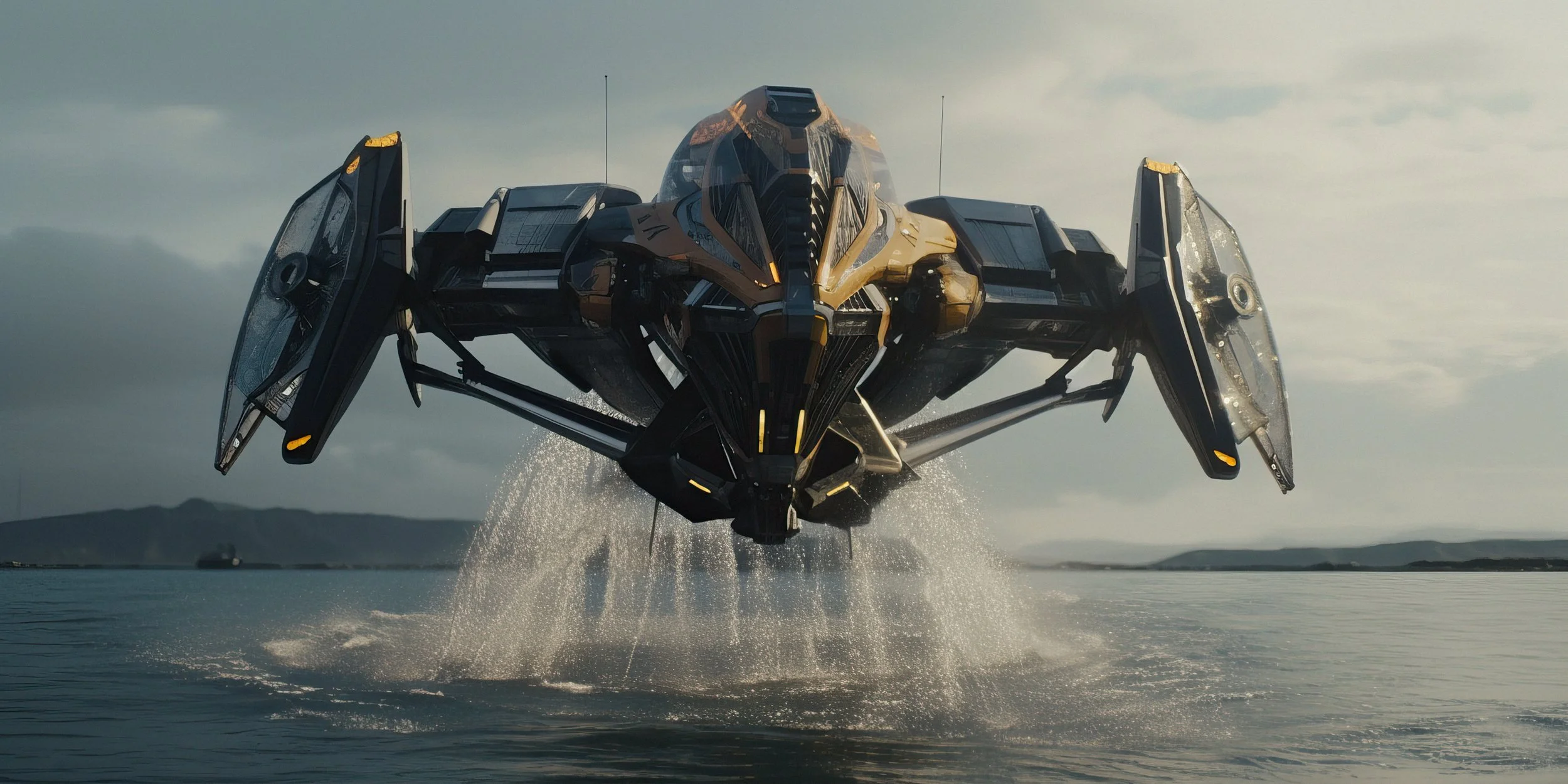
THE NEW OCEANIC URBAN FRONTIER
FLOATING CITIES

FLOATING CITIES
NEW WORLDS

A simpler time
In the early years of the twenty-first century, the world was much simpler before the emergence of the floating cities. During the twentieth century, expansion into the oceans started modestly with land reclamation projects in places like Monaco and Dubai, where luxury homes and hotels were constructed. This approach evolved when bases were established on reefs in the South China Sea, marking a shift in humanity's relationship with the ocean.

Atlantis leads the way
The gradual encroachment of land on the oceans continued for several years, but the world experienced a dramatic shift in 2042 with the rebirth of Atlantis under the future Atlas XII. Situated in the Pacific and free from any nation's jurisdiction, Atlantis emerged as an independent, sovereign nation. This development granted Atlantis a 12-mile territorial sea and, more significantly, a 200-nautical-mile exclusive economic zone surrounding it, providing Atlantis with the exclusive right to exploit resources within that area.

Official recognition
The emergence of Atlantis caught the United Nations entirely by surprise. Despite years of ensuing controversy, it became clear that Atlantis met the UN's criteria for nationhood. Boasting a substantial population, territory, and government, the new Republic easily satisfied the traditional requirements for a nation. Furthermore, Atlantis' extensive trade networks and advanced technology enticed many countries to establish business relations. As a result, in 2046, Atlantis was officially recognized as a member of the United Nations.

A myriad of nations
The recognition of Atlantis forever changed the world. A surge of both nations and corporations staking claims to vast ocean territories sparked one of the most tumultuous centuries in history. As new cities were created and united, they formed larger, more powerful nations. In a bid for instant legitimacy, many of these emerging nations adopted names inspired by long-lost kingdoms and empires that had risen and fallen throughout the course of history.

The brink of war
The year is now 2126. As three-quarters of the world is covered by ocean, teeming with untapped resources beneath the waves, the past few decades have been rife with conflict over this new frontier. Two of the world's three superpowers are now oceanic nations, with only the USA maintaining its status due to its advanced technology. So far, no major war has erupted between land-based and sea-based powers, but as floating cities continue to encroach upon the land, tensions are reaching a critical point. It seems only a matter of time before the powder keg of war ignites, pitting the land and sea against one another in a devastating conflict.



